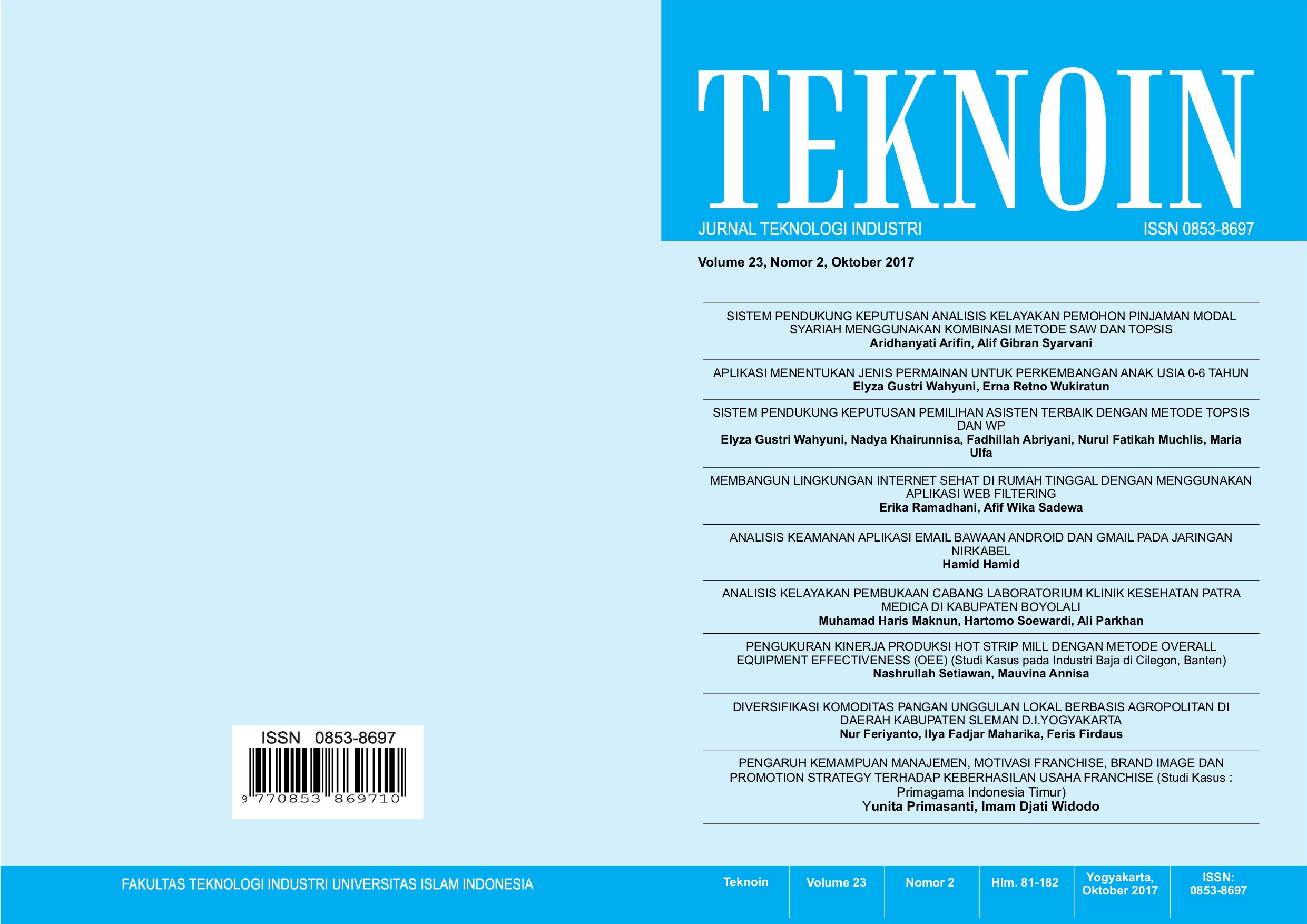Main Article Content
Abstract
Demand for Islamic business capital loan by UMKM especially in BMT, has increased. On the other hand there are facts of nonperforming loans that harm the BMT. A rigorous selection of MSMEs is required to apply for loans. During this time, the selection process is done by analyzing applicant data manually and based on the intuition of credit analyst. And to provide accurate selection results are not enough human intuition alone, especially if faced with a large number of applicants. The solution is to use Decision Support System approach (SPK) which will give consideration of computer technology-assisted decision by processing data applicant and analyze its feasibility. SPK combines two methods of MCDM namely Simple Addictive Weighting Method (SAW) and Technique for Order Preference by Similarity to Ideal Solution (TOPSIS). Assessment criteria used are 13 criteria / sub criteria: character, responsibility, personal habits, honesty, level of religiosity, business management, business equipment, human resources, business location and monthly income. The results obtained are selected 2 SMEs who are eligible to receive sharia capital credit credit BMT from 25 sample data, the loan applicant's feasibility analysis is presented with a ranking format. The final decision is decided by the BMT as the decision maker. Based on the test results, the accuracy of the SPK in giving recommendation of business loan grantee is 76%.
Article Details
License
Authors who publish with this journal agree to the following terms:
- Authors retain copyright and grant the journal right of first publication with the work simultaneously licensed under a Creative Commons Attribution License that allows others to share the work with an acknowledgement of the work's authorship and initial publication in this journal.
- Authors are able to enter into separate, additional contractual arrangements for the non-exclusive distribution of the journal's published version of the work (e.g., post it to an institutional repository or publish it in a book), with an acknowledgement of its initial publication in this journal.
- Authors are permitted and encouraged to post their work online (e.g., in institutional repositories or on their website) prior to and during the submission process, as it can lead to productive exchanges, as well as earlier and greater citation of published work (See The Effect of Open Access).
